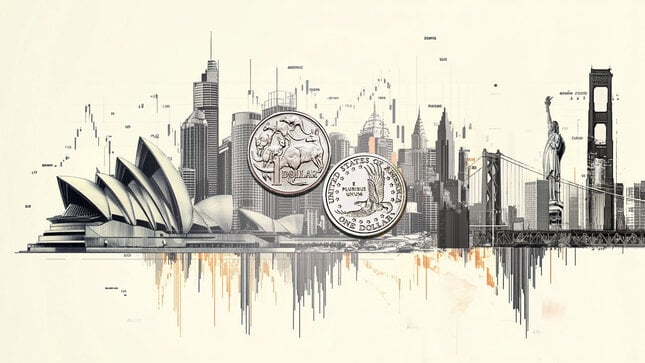It may sound like a contradiction, but the best way to get where you want to go in the trade – meaning profit – is to stop focusing on it. In other words, the outcome of P/L is not important. The element that is critically important is your process; that is, the flawless execution and implementation of strategy and plan; your edge.
Take a moment to think about what happens when you initiate planning and implementation of a trade; for instance, checking economic reports and broad markets, setting the curve, finding and drawing the zones, checking the trend, scoring the trade with odds enhancers, determining S.E.T.S. (stop, entry, target, size), placing the order, managing the trade, monitoring reports that might impact the price movement, and logging the trade after it is closed. Now, what part of this process focuses on profit? None of it does; except of course identifying your profit target to establish reward/risk parameters, which is very important. Otherwise, the potential profit is not relevant to the process; but the novice focuses on and emotionally invests in it.
Consider how the novice feels when the trade does not end in their favor; they feel emotionally betrayed, angry, sad and, in many cases, vengeful as well. Now, what is this reminiscent of… relationships? When you get into a relationship and it falls apart, generally speaking the same emotions are experienced; i.e., betrayal, anger, sadness and vengeance as well, in some cases.
When you think about it, entering into a trade is a relationship…it is a relationship between you and the market, meaning your beliefs about the market and the trade. If you believe that the trade should go your way and that the markets must respond positively, and if you are emotionally connected to a profitable outcome, then when it fails you become despondent and/or angry. This happens to a large degree because of the element of what I call the Tyranny of Certainty.
Certainty can and often does distort our view of reality; it obscures contravening variables and minimizes them. Certainty often causes the Confirmation Bias, where unconsciously you only look for and consider data that confirms your initial evaluation of the prospect. In other words, you are caught in an oppressive notion that leaves you cognitively trapped. Certainty has become your master. Additionally, it can cause errant behavior; that is, you’ll do things that are designed to decrease the discomfort associated with those beliefs that cannot be fulfilled. Therein lay the tyranny. It becomes a vice wrapped around your head and your mouse hand that forces behaviors like moving stops, chasing trades, premature exiting or doubling down on losers. In other words, when you emotionally invest in profit, you are setting yourself up for head and heart aches not to mention reinforcing poor execution and implementation.
So, what is a trader to do? Well, one of the things to do is to re-evaluate the way you envision the markets and your relationship to loss. What you want to develop is an I don’t care attitude regarding your trading. You must look at the markets as being exactly what they are, totally unpredictable. No matter how good a level looks, it is not a foregone conclusion that any particular outcome is definite. What we look for is the high probability trade. There are times when the probability may get very close to 100%, but no matter how close it gets it can never be 100%. This means that whenever you enter a trade you must embrace it as a possibility for loss. When you do this, it detaches you from the loss potential because you are prepared for it.
Of course, you already have begun this process whether you realize it or not. You have put in a hard stop! This is imperative. The stop’s first and main job is to protect your capital. If your capital is gone you cannot trade, so it follows that this is the most important part of your trading; and, of course it is derived from an appropriate risk calculation.
Further, in your preparation for a potential loss, ensure that your concept of loss is firmly engulfed in the belief that small losses are good…another paradox! Why are small losses good? They’re good because losses are inevitable; every trader experiences loss; and every small loss gets me closer to a big win. So, what you must do is see them as they truly are; meaning, losses are just a cost of doing trading the markets. Or, A loss is not a failure, but a lesson providing information that is extremely valuable.
So, are you getting the point? You’ve got to trade as if the money doesn’t matter, because the profit in any one trade really does not matter. Of course we trade for profit, but that profit should be calculated as a percentage of trades entered. The only thing that matters is how you do what you do … your process. Process must be flawless and driven only by the standard of your execution and implementation which should be excellence. Additionally, your edge is crucial as well. Your edge is the consistent use of the Core Strategy referenced in the above. But, there is no edge that is 100%.
Don’t be drawn into that seductive siren of profit. Profit is gained by the methodical, unrelenting, consistent and ruthless application of the process. You must relinquish your embrace of the profit in order to set up the conditions for profit to come to you. This is what we teach in the Mastering the Mental Game online and on-location courses. Ask your Online Trading Academy representative for more information. Also, get my book, From Pain to Profit: Secrets of the Peak Performance Trader.
Joyous Trading
Note: All information on this page is subject to change. The use of this website constitutes acceptance of our user agreement. Please read our privacy policy and legal disclaimer. Opinions expressed at FXstreet.com are those of the individual authors and do not necessarily represent the opinion of FXstreet.com or its management. Risk Disclosure: Trading foreign exchange on margin carries a high level of risk, and may not be suitable for all investors. The high degree of leverage can work against you as well as for you. Before deciding to invest in foreign exchange you should carefully consider your investment objectives, level of experience, and risk appetite. The possibility exists that you could sustain a loss of some or all of your initial investment and therefore you should not invest money that you cannot afford to lose. You should be aware of all the risks associated with foreign exchange trading, and seek advice from an independent financial advisor if you have any doubts.
Editors’ Picks

USD/JPY: Japanese Yen rises as tariff woes rattle markets
USD/JPY slides to test 154.00 in the Asian trading hours on Monday. The Japanese Yen attracts haven demand amid tariff uncertainty, which weighs negatively on market sentiment and the US Dollar.

Gold rallies above $5,150 as Trump’s tariffs boost haven demand
Gold price extends the rally above $5,150 in the Asian session on Monday. The precious metal extends the rally amid US President Donald Trump’s tariff threats and uncertainty, which boost safe-haven flows. US-Iran geopolitical risks also linger, supporting the Gold price upside.

AUD/USD struggles below 0.7100 as trade tensions weigh
AUD/USD eases back below the 0.7100 mark during the Asian session on Monday as trade-related uncertainties continue to sag investors' confidence. However, the downside in the pair ciould be cushioned by a broadly weaker US Dollar and expectations of dfivergent monetary policy outlook between the Fed and the RBA.

Week ahead: Markets brace for heightened volatility as event risk dominates
Dollar strength dominates markets as risk appetite remains subdued. A Supreme Court ruling, geopolitics and Fed developments are in focus. Pivotal Nvidia earnings on Wednesday as investors question tech sector weakness. Yen and aussie diverge; both pound and euro could recoup their losses.

Liberation day take two, the tariff machine just changed gears
Let me caveat this from the outset. What we are watching is first-order mechanics, not the grand macro endgame. This is the market’s immediate reflex to a 15% Trump tariff levy dressed up as judicial drama. The Supreme Court blocked Trump tarrif hammer. The White House came back with a scalpel.
RECOMMENDED LESSONS
Making money in forex is easy if you know how the bankers trade!
I’m often mystified in my educational forex articles why so many traders struggle to make consistent money out of forex trading. The answer has more to do with what they don’t know than what they do know. After working in investment banks for 20 years many of which were as a Chief trader its second knowledge how to extract cash out of the market.
5 Forex News Events You Need To Know
In the fast moving world of currency markets where huge moves can seemingly come from nowhere, it is extremely important for new traders to learn about the various economic indicators and forex news events and releases that shape the markets. Indeed, quickly getting a handle on which data to look out for, what it means, and how to trade it can see new traders quickly become far more profitable and sets up the road to long term success.
Top 10 Chart Patterns Every Trader Should Know
Chart patterns are one of the most effective trading tools for a trader. They are pure price-action, and form on the basis of underlying buying and selling pressure. Chart patterns have a proven track-record, and traders use them to identify continuation or reversal signals, to open positions and identify price targets.
7 Ways to Avoid Forex Scams
The forex industry is recently seeing more and more scams. Here are 7 ways to avoid losing your money in such scams: Forex scams are becoming frequent. Michael Greenberg reports on luxurious expenses, including a submarine bought from the money taken from forex traders. Here’s another report of a forex fraud. So, how can we avoid falling in such forex scams?
What Are the 10 Fatal Mistakes Traders Make
Trading is exciting. Trading is hard. Trading is extremely hard. Some say that it takes more than 10,000 hours to master. Others believe that trading is the way to quick riches. They might be both wrong. What is important to know that no matter how experienced you are, mistakes will be part of the trading process.
The challenge: Timing the market and trader psychology
Successful trading often comes down to timing – entering and exiting trades at the right moments. Yet timing the market is notoriously difficult, largely because human psychology can derail even the best plans. Two powerful emotions in particular – fear and greed – tend to drive trading decisions off course.

